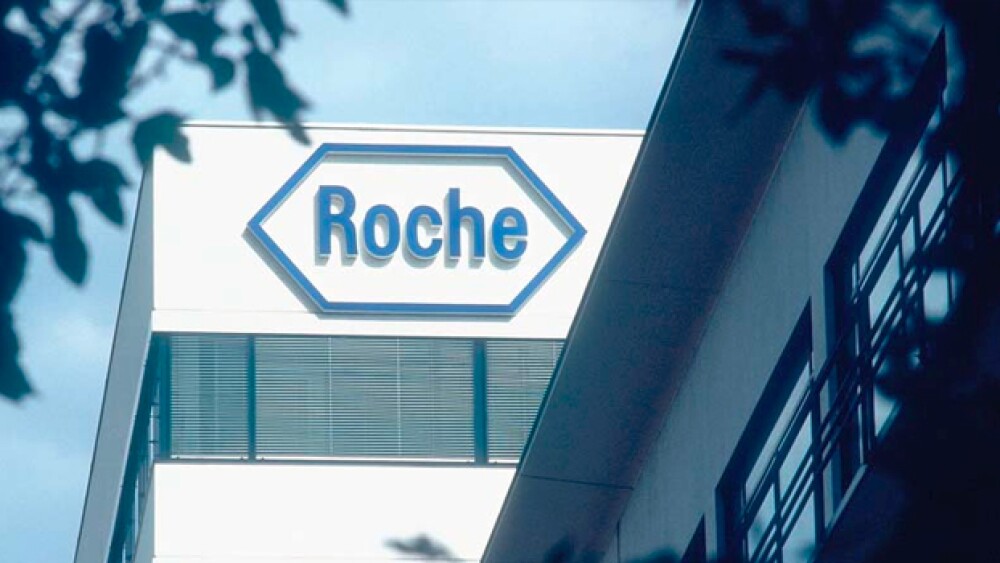Rozlytrek is the first tumor-agnostic medicine approved in Japan for adult and pediatric patients with NTRK fusion-positive advanced recurrent solid tumors.
Japan has become the first country to approve Roche’s personalized medicine Rozlytrek. This is the first tumor-agnostic medicine approved in Japan for adult and pediatric patients with neurotrophic tyrosine receptor kinase (NTRK) fusion-positive advanced recurrent solid tumors.
NTRK gene fusions have been identified in a range of hard-to-treat solid tumor types, including pancreatic, thyroid, salivary gland, breast, colorectal and lung, Roche said in its announcement this morning. However, diagnosing those types of tumors is difficult. Roche said that biomarker testing for NTRK gene fusions is the only way to identify people who may be eligible for treatment with Rozlytrek. The Swiss pharma giant is working with its subsidiary Foundation Medicine to develop personalized medicines and advanced diagnostics to help identify people with NTRK gene fusions using a companion diagnostic that is undergoing review, the company said.
Rozlytrek (entrectinib) is an oral medication for the treatment of locally advanced or metastatic solid tumors that harbor NTRK1/2/3. It is a selective tyrosine kinase inhibitor designed to inhibit the kinase activity of the TRK A/B/C and ROS1 proteins, whose activating fusions drive proliferation in certain types of cancer. Rozlytrek can block ROS1 and NTRK kinase activity and may result in the death of cancer cells with ROS1 or NTRK gene fusions, Roche said.
Sandra Horning, Roche’s chief medical officer and head of Global Product Development, called the approval of Rozlytrek in Japan a “new chapter in personalized healthcare” by applying advanced diagnostics to deliver precision medicines that target cancers based on their molecular drivers instead of their location in the body.
“We are proud to be at the forefront of personalized medicine with this novel treatment approach, and we look forward to working with regulatory agencies around the world to bring Rozlytrek to more patients with NTRK fusion-positive cancer, as well as to those with ROS1 fusion-positive NSCLC, as soon as possible,” Horning said in a statement.
Roche won approval for Rozlytrek based on data from the multiple STARTRK studies in adult and pediatric patients. In the pivotal Phase II STARTRK-2 study, Rozlytrek shrank tumors in 56.9% of people with NTRK fusion-positive solid tumors. Objective responses to Rozlytrek were seen across 10 different solid tumor types, including in people with and without CNS metastases at baseline. Rozlytrek also shrank tumors that had spread to the brain in more than half of the patients, Roche noted. In the STARTRK-NG study, Rozlytrek shrank tumors also in children and adolescents who had NTRK fusion-positive solid tumors including the patients with primary CNS tumors.
The most commonly reported adverse reactions include constipation, altered sense of taste, diarrhea, dizziness, fatigue, swelling, weight increase, anemia, blood creatinine increase, shortness of breath and nausea.
In Japan, Rozlytrek was granted Sakigake (Breakthrough Therapy) designation and orphan drug designation by the Ministry of Health, Labor and Welfare, Japan’s regulatory agency. Rozlytrek is also undergoing review in Japan for the treatment of ROS1 fusion-positive non-small cell lung cancer (NSCLC).
In the U.S., Rozlytrek has been granted Priority Review by the U.S. Food and Drug Administration for the treatment of NTRK fusion-positive, locally advanced or metastatic solid tumors in adult and pediatric patients who have either progressed following prior therapies or as an initial therapy when there are no acceptable standard therapies. It also received Priority Review for the treatment of people with metastatic, ROS1 fusion-positive NSCLC.





